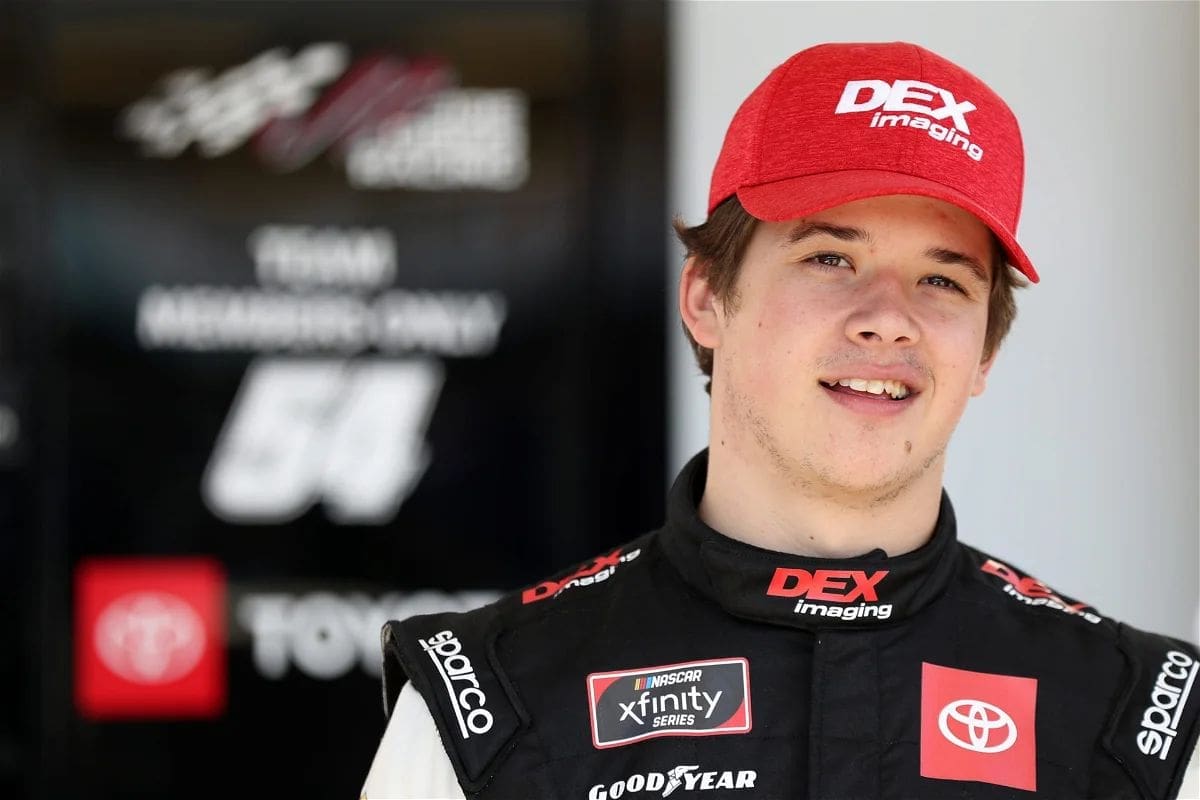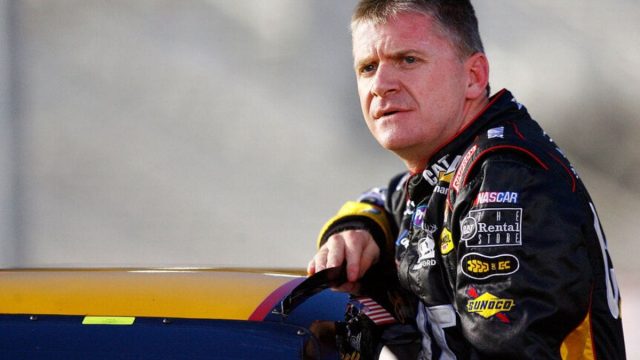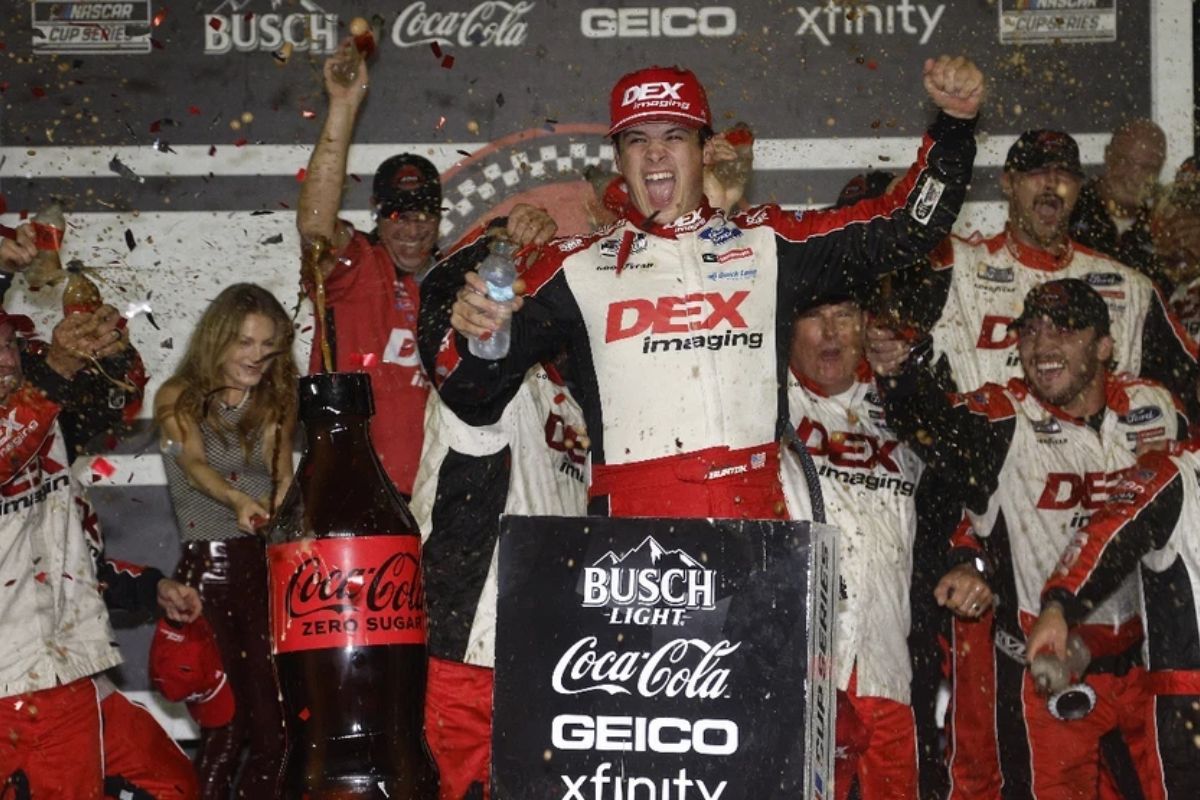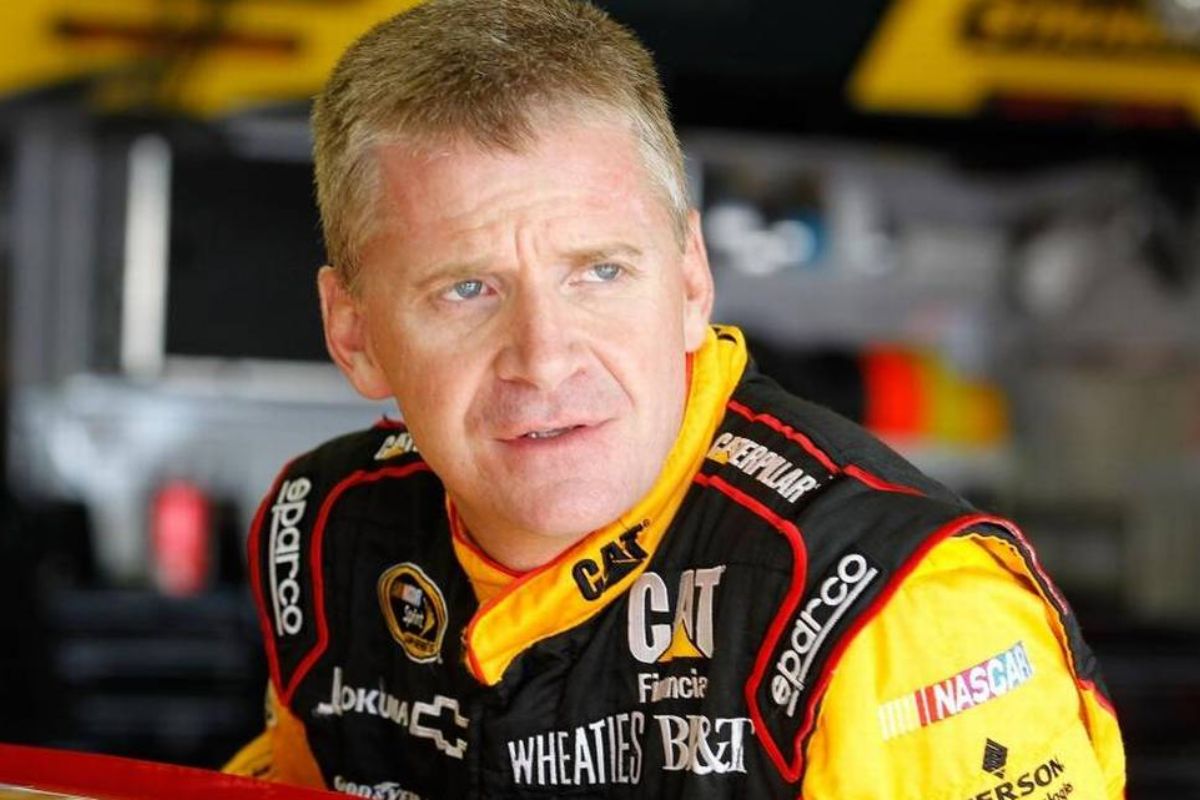Jeff Burton Demands End to Team Favoritism: Jeff Burton’s recent call for an end to team favoritism within NASCAR raises pressing questions about the sport’s integrity and competitive balance. As he articulates the effects of perceived inequities on race outcomes and driver morale, the implications of his stance extend beyond individual grievances to the very essence of what makes NASCAR compelling. Will the governing bodies respond to his concerns with the urgency they demand, or will they allow the status quo to persist? The potential consequences of inaction may soon become evident, prompting a reevaluation of what fairness truly means in the world of racing.
Key Highlights
- Jeff Burton advocates for stricter regulations to prevent team favoritism, emphasizing fairness among drivers in NASCAR.
- Favoritism can negatively impact race outcomes and driver morale, creating an uneven playing field.
- The urgency for NASCAR to address favoritism is critical to maintain integrity and competitiveness in the sport.
- Harrison Burton’s recent success highlights the need for equal opportunities for all drivers, regardless of team affiliations.
- Jeff Burton’s call for change reflects a broader concern for the future of NASCAR and the importance of equitable competition.
Harrison Burton’s Stunning Win at Daytona
Surprising many, Harrison Burton’s victory at Daytona has ignited conversations around the unpredictability of NASCAR and the complexities of team dynamics. This unexpected win, particularly against a seasoned competitor like Kyle Busch on the final lap, raises critical questions about merit, opportunity, and the essence of competition within the sport.
Burton’s ascent from a disheartening P34 to playoff contention, following a dismissal from his team due to performance issues, highlights the volatile nature of racing. While his win has sparked skepticism, it also serves as a proof of the inherent unpredictability that NASCAR aims to cultivate through its playoff system. The very fact that a driver previously deemed underperforming can clinch a notable victory emphasizes the sport’s capacity for surprises, a feature that draws fans and keeps them engaged.
Moreover, this scenario invites examination of the broader implications of team dynamics in NASCAR. How do team decisions impact a driver’s path, and what does it mean when a driver can defy expectations so dramatically? The narrative surrounding Burton’s victory speaks to a deeper conversation about fairness, opportunity, and the role of individual agency within a heavily structured environment.
Harrison Burton’s Daytona win not only reshapes his career but also challenges the status quo in NASCAR. It forces stakeholders to grapple with the underlying principles that govern competition, pushing for a reflection on how talent, fate, and opportunity converge on the racetrack.
Jeff Burton’s Insights for Young NASCAR Drivers
Amid the backdrop of Harrison Burton’s recent triumph at Daytona, Jeff Burton’s insights for young NASCAR drivers provide invaluable guidance rooted in his extensive experience in the sport. With 21 wins in the Cup Series, Jeff underscores that a driver’s development should not overshadow the importance of the car’s performance.
“When you are working hard on your craft and your team is working hard on making you a better driver, there’s a danger in the focus being just on the driver being better when the car needs to be better too. Because no matter who drives the race car,a faster race car goes fast. You need to help build a better race car and be a better race car driver because the two go hand in hand.”-(jeff)
Jeff further advises against mimicking teammates’ setups blindly, as he asserts that success is not universally transferable: “If you have a teammate and your teammate is having success with a certain setup, that doesn’t mean it’s good for you.” Ultimately, Jeff highlights the significance of the business aspect of NASCAR, advocating for young drivers to maintain close relationships with their teams to navigate the complexities of the sport effectively.
Jeff Burton’s Mentorship and Support
The relationship between Jeff Burton and his son, Harrison, exemplifies the profound impact of mentorship in the competitive world of NASCAR. With Jeff’s extensive experience and successes—including 21 career victories in the Cup Series—he serves not only as a father but as a significant pillar of support for his son. This dynamic has been crucial as Harrison navigates the challenges in his early racing career.
The mentorship provided by Jeff can be distilled into three fundamental elements:
- Guidance through Experience: Jeff’s firsthand knowledge of the sport allows him to offer Harrison invaluable insights into racing strategies, vehicle dynamics, and the mental fortitude required to excel on the track.
- Emotional Support: The racing world is fraught with pressure and setbacks. Jeff’s steadfast encouragement has been a source of strength for Harrison, especially during the difficult times marked by his initial 97 series starts.
- Inspiration through Legacy: Growing up in a racing household, Harrison has been inspired by his father’s achievements. This legacy not only motivates him but also shapes his approach to competition, fostering a deep passion for the sport.
Through this mentorship, Jeff Burton has crafted a nurturing environment that enables Harrison to thrive, proving that in NASCAR, as in life, the right guidance can pave the way for success.
As both father and mentor, Jeff’s role is instrumental in shaping the next generation of racers.
Jeff Burton’s Proud Moment
One of Jeff Burton‘s most cherished moments unfolded as he watched his son, Harrison, claim victory after 97 races in the NASCAR series—a milestone that exemplified resilience and determination. This moment was not merely a personal triumph; it served as a confirmation of the steadfast spirit that defines both the Burton family and the sport itself.
Observing from the NBC Sports broadcast booth, Jeff felt an overwhelming sense of pride as he shifted to the tri-oval grass in victory lane, ready to celebrate a hard-fought achievement.
Harrison’s expedition was marked by consistent perseverance, reflecting a core principle instilled by Jeff: “never quit.” This mantra became increasingly crucial throughout the long stretch of 97 races, where setbacks could easily lead to self-doubt.
Yet, Jeff’s persistent belief in his son resonated deeply in Harrison’s mind. The advice, “Harrison, you’re a better racecar driver than you’re allowing yourself to be at the moment,” became a guiding light, urging him to exceed his limitations.
This proud moment transcends personal victory; it encapsulates the essence of mentorship and the intrinsic bond between father and son. Jeff’s support was essential, fostering an environment where Harrison could confront challenges head-on.
As the NASCAR community witnessed this breakthrough, it highlighted not only the significance of familial ties but also the importance of resilience in the face of adversity—qualities that remain fundamental to the sport.
Through this victory, the Burtons have redefined what it means to pursue excellence.
Harrison Burton’s Future in NASCAR
Frequently reflecting on his recent victory at Daytona, Harrison Burton now faces an uncertain future in NASCAR as he searches for a new team following his departure from Wood Brothers Racing.
Despite the triumph that marked his potential, the reality of his situation is apparent; teams are wary of taking a chance on a driver who has been released, even after a remarkable win.
As Harrison navigates this challenging landscape, several factors will likely influence his prospects:
- Performance Consistency: The victory at Daytona may be a turning point, but sustained performance is vital. Teams will scrutinize his comprehensive record and adaptability to different tracks to gauge long-term viability.
- Market Dynamics: The current state of the NASCAR driver market is competitive. Many teams may prioritize established talent or younger prospects, making it fundamental for Harrison to utilize his recent success to attract attention.
- Personal Branding: How Harrison presents himself off the track—through social media engagement, fan interaction, and sponsorship relationships—can greatly impact team interest. A strong personal brand can differentiate him in a crowded field.
Harrison Burton’s future in NASCAR hinges on a combination of his racing insight, market circumstances, and how effectively he can position himself as a valuable asset.
With the right approach, he may yet find a promising opportunity in the sport he loves.

News in Brief: Jeff Burton Demands End to Team Favoritism
The call for an end to team favoritism in NASCAR, as articulated by Jeff Burton, highlights a crucial moment for the sport’s integrity. Addressing this issue is essential not only for maintaining fairness among competitors but also for fostering a positive environment that encourages emerging talent. The potential ramifications of inaction could lead to diminished trust among drivers and fans alike. Consequently, NASCAR stands at a crossroads, where decisive measures could redefine the competitive landscape for future generations.
ALSO READ: Jeff Burton Urges Son to Stay Positive Amid Uncertain NASCAR Future


